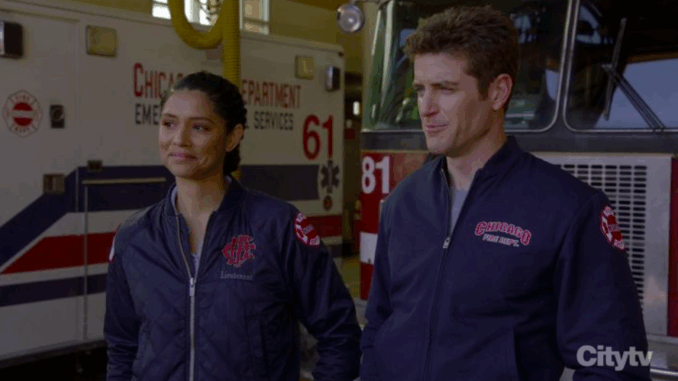
Chicago Fire has introduced plenty of characters over the years, but few have felt as volatile, compelling, and layered as Sam Carver. Since his arrival, Carver has unsettled the rhythm of Firehouse 51—sometimes in ways that ignite sparks, and sometimes in ways that threaten to blow everything up.
As the show continues to reshape its identity following the departures of long-standing characters, Carver has emerged as a wild card—a firefighter whose brilliance in the field is matched only by the instability he brings to the locker room. And in that friction, Chicago Fire finds some of its most exciting storytelling.
A Troubled Past, A Promising Future
From the moment Carver arrived, it was clear he carried baggage. He doesn’t talk much about it, but it leaks through—flashes of rage, moments of withdrawal, the bruises that don’t come from fire alone.
There are hints of trauma, likely unresolved. Hints of guilt. But also a desire to prove himself, not just to others, but to himself.
Unlike Ritter or Kidd, who strive for balance and harmony, Carver operates on instinct. He runs into fires like he’s chasing something. And sometimes, you get the sense that it’s not the blaze he’s trying to extinguish—it’s something burning inside him.
Chemistry with Kidd: Fire or Fallout?
One of the most charged dynamics in recent seasons has been between Carver and Stella Kidd. Their scenes crackle with unspoken tension—mutual respect, maybe even admiration—but also frustration and miscommunication.
There have been moments where fans wondered: is this leading to romance? Rivalry? Betrayal? And the show wisely plays in that ambiguity.
What’s clear is that Kidd sees something in Carver that others don’t: potential. She challenges him, pushes him, forces him to think. And in return, he occasionally pushes back—not with insubordination, but with defiance rooted in fear of vulnerability.
It’s not about power. It’s about trust. And trust, for Carver, is a slow burn.
Explosive Talent, Explosive Temper
In the field, Carver is brilliant. Quick-thinking, fearless, physically gifted. He saves lives that others might hesitate to risk. But that edge comes with a cost.
He’s prone to flare-ups—verbally, emotionally, even physically. He clashes with colleagues, sometimes for good reason, sometimes out of pure frustration. And the show doesn’t shy away from showing how that volatility can endanger the very team he wants to protect.
It’s a delicate balance. Carver’s instincts make him a hero. His temper makes him a liability. And Chicago Fire seems determined to explore both sides, without simplifying either.
The Antihero of Firehouse 51?

Carver fits the mold of the classic antihero. He’s not always likable. He doesn’t make friends easily. But there’s a sincerity to his struggle—one that suggests he wants to do right, even if he doesn’t always know how.
This season, we’ve seen glimmers of growth: quieter conversations with Ritter, reluctant moments of vulnerability with Kidd, and a refusal to back down when his instincts tell him a call is wrong.
He’s trying. He’s learning. And while he may never be the smiling, dependable firefighter that fans rally around, he’s becoming someone they can’t ignore.
A Potential Ticking Clock?
There’s also an undercurrent of danger to Carver’s arc. Will he stay? Will he implode? Will he be the next one out the door? These questions add tension to every episode he’s in.
And maybe that’s the point. Carver is a reminder that not everyone at 51 finds their footing easily. Some arrive in pieces—and whether they put themselves back together or fall apart entirely is the very essence of compelling drama.
Final Thoughts
Sam Carver may never be the heart of Chicago Fire. But he might be its nerve—raw, twitching, unpredictable. He’s not here to play nice. He’s here to test the limits of what it means to be brave, broken, and barely holding it together.
And in a firehouse defined by second chances, he may just be the one who needs his the most.